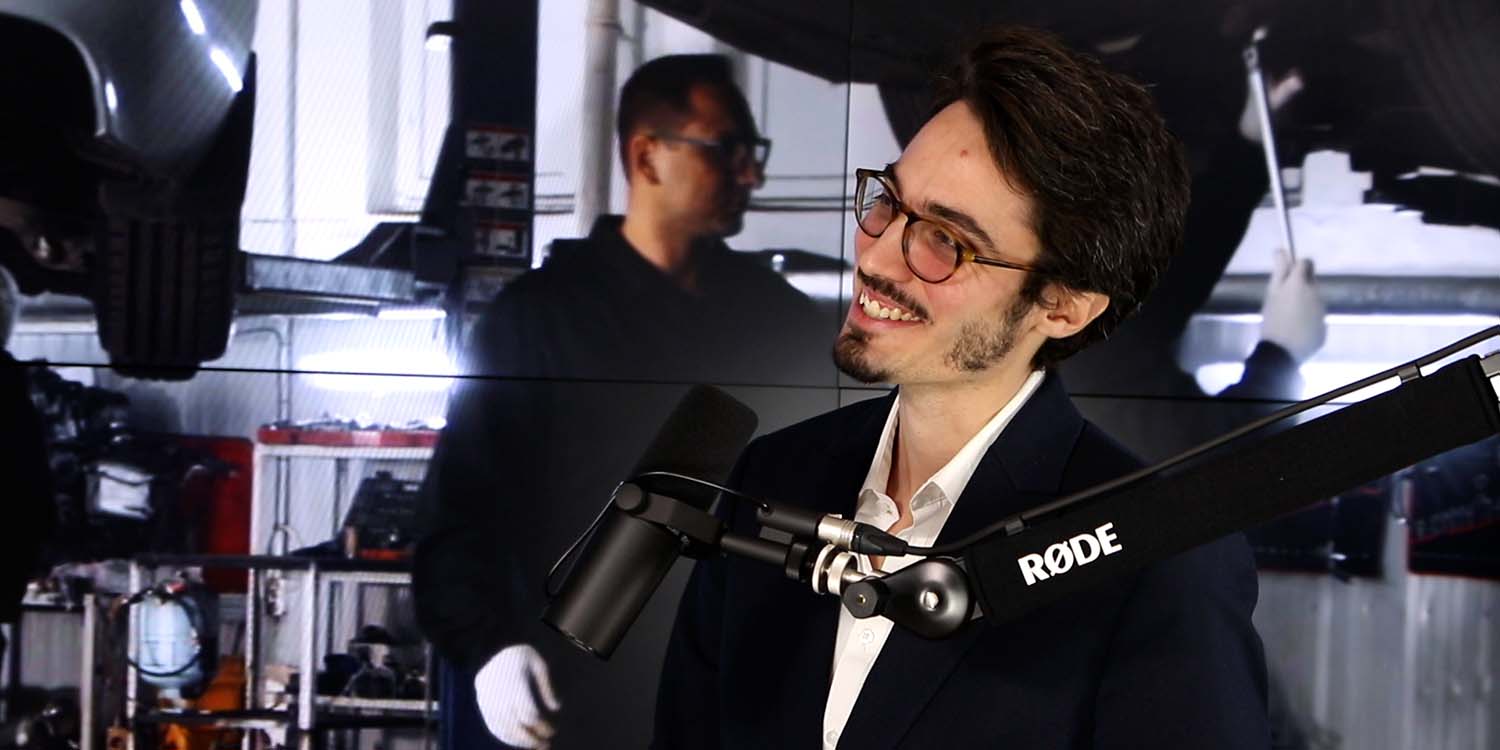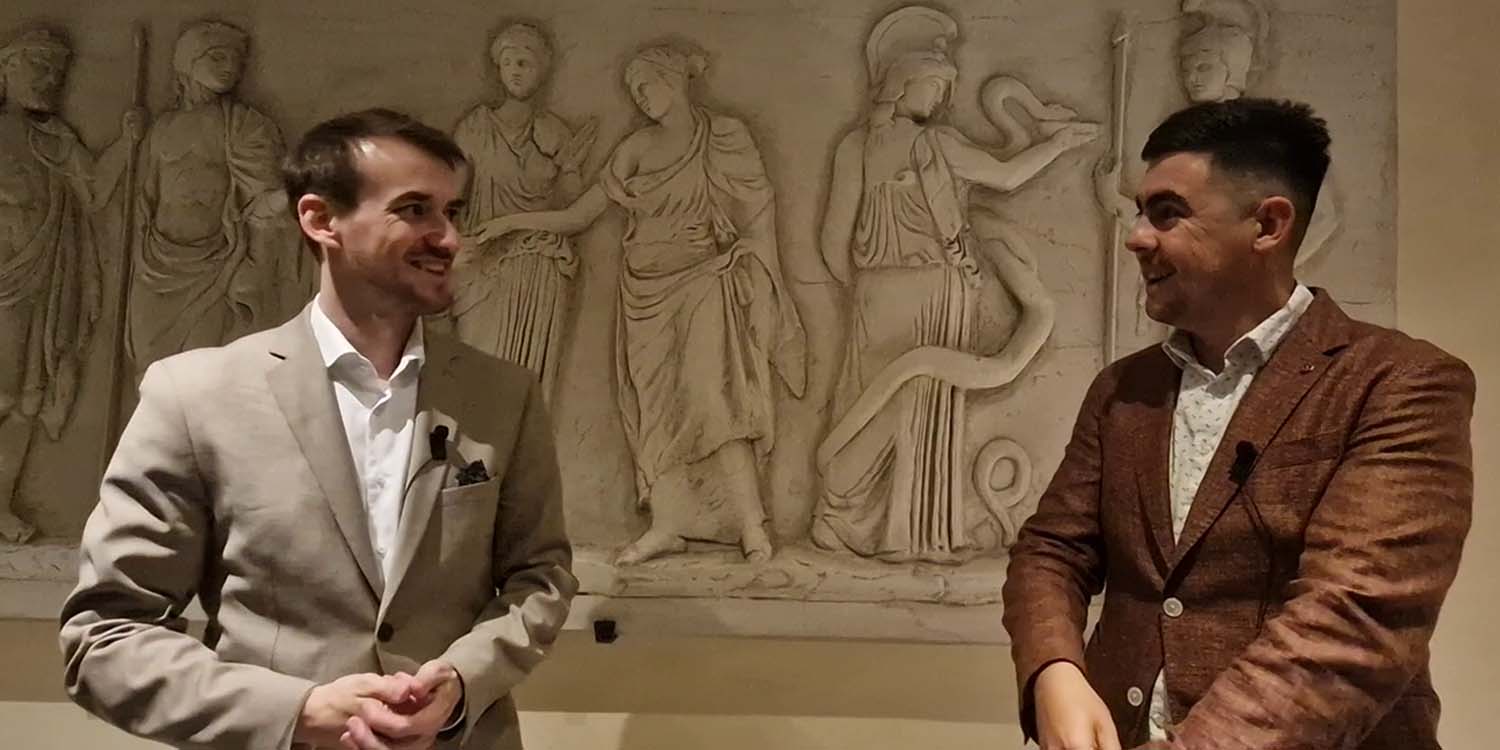Summary
In a recent interview, key figures from Spairliners and Lokad discussed their roles and collaborative efforts in the aviation industry. Rene Popp, Head of Engineering at Spairliners, emphasized efficient asset management and logistics. Quentin Roux, Supply Chain Team Leader, highlighted managing supplier relationships and repair orders. Remi Quentin from Lokad focused on optimizing supply chain processes through data science. Elizabeth Peters, Sales Director, discussed business development in North America. Cyril Gaudard, Team Leader Asset & Procurement, praised the dynamic industry and teamwork. The interview underscored the importance of collaboration, continuous learning, and strategic partnerships in overcoming aviation supply chain challenges.
Full Transcript
Rene Popp: I’m leading the asset management team together with engineering, logistics, and AOG team leaders in the asset management team. I have a team of four people working together with me, and our role is to manage the pool as efficiently as possible at the best cost possible. It’s the typical logistic problematics: the right part at the right time at the right cost. But it goes a bit further than this in aviation.
Quentin Roux: I’m the team leader of the supply chain at Spairliners. The supply chain team aims to repair the parts and manage the suppliers for the full Spairliners’ work scope. It’s a team of eight people, and we manage more than 12-13 suppliers on a daily basis. This includes more than 1,000 repair orders per month.
Remi Quentin: My role is Senior Supply Chain Scientist, which is a mix between being a data scientist and a supply chain expert.
Elizabeth Peters: I’m a sales director, and I engage in business development in North America. I spend a lot of time looking and talking to prospects in America and Canada, and sometimes in South America as well.
Cyril Gaudard: What I really enjoy is how dynamic the industry is, especially in a smaller company like Spairliners. There is always something new to learn, always a new contribution to bring. It’s very interesting and important to see that we all thrive together and move forward together with the colleagues. Working with the team currently in Spairliners is definitely a highlight of my daily life.
Rene Popp: I would say that every day I go to work, I learn a lot, especially in the logistics field. When you aim to serve a customer on time, which might have findings on an AOG basis, it’s 100% sure that you will run into problems. Being able to tackle those problems and solve them to the best of my abilities, while ensuring customer satisfaction and keeping in mind Spairliners’ cost constraints, is something I really thrive on. It’s such a variety of topics; it’s never boring.
Elizabeth Peters: What I like the most about my job is the interaction with potential partners, meeting new people, and trying to bring value to their companies and their airlines. It’s been a lot of fun seeing how you can make a connection and make things work between two different companies. It’s very enjoyable for me.
Quentin Roux: The multicultural interaction is something I value. We have a lot of different people with different backgrounds, some from the aeronautic world and some not. It’s always an interesting interaction to work together to achieve customer satisfaction because they need to fly, and that’s why we are here.
Elizabeth Peters: Primarily because it’s a very international company, and although we’re small and agile, we are also built on the stability of two larger companies. There’s a lot of opportunity to grow, change, and be creative.
Cyril Gaudard: It’s a rather small company, and instead of working with OEMs or bigger MROs, it’s the mixture of so many different cultures that makes us unique. Spairliners is unique thanks to its culture and its people. We work as a very tight group, supporting each other and always ready to go the extra mile to move the company forward.
Elizabeth Peters: The biggest challenge right now is managing all of the prospects and pre-existing customers at the same time. It’s been very challenging after COVID ended, with new problems arriving with supply chain disruptions.
Quentin Roux: What we are facing right now is very difficult to handle. We have challenges that can be found all around the aviation supply chain at the moment. It’s the parts shortages, material shortages, and difficulties in finding the proper staff. We all try together to mitigate these issues by surrounding ourselves with the right partners, with Lokad being one of them.
Rene Popp: The worldwide supply chain situation, the low availability of spare parts, means we need to prioritize, be proactive in what we do, and manage repairs efficiently. That’s the biggest challenge we are facing.
Remi Quentin: It’s a very unique tool that gives you a complete overview of what’s going on in the supply chain and what we need to do to keep our availability.
Elizabeth Peters: Because of the way these two companies are, they are very similar. We grew together, learned together, and brought expertise to one another. This is a unique relationship because there’s no battling; we value each other’s expertise and advice, and we’re always ready to question ourselves to make the best use of the relationship.
Quentin Roux: You guys are adapting to the customer needs. What I need is to manage a repair flow in the best way possible, optimizing my repair flow, cost, and turnaround time. This is what you manage to do with our data, also suggesting ideas on how to improve, and that’s what I like the most.
Elizabeth Peters: What I like the most about working with Lokad is that when I need to know something, I just go straight to the website, put in a part number, and find everything I need to know about it in seconds. It’s not complicated; it’s amazing.


